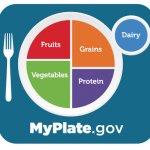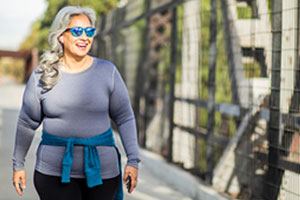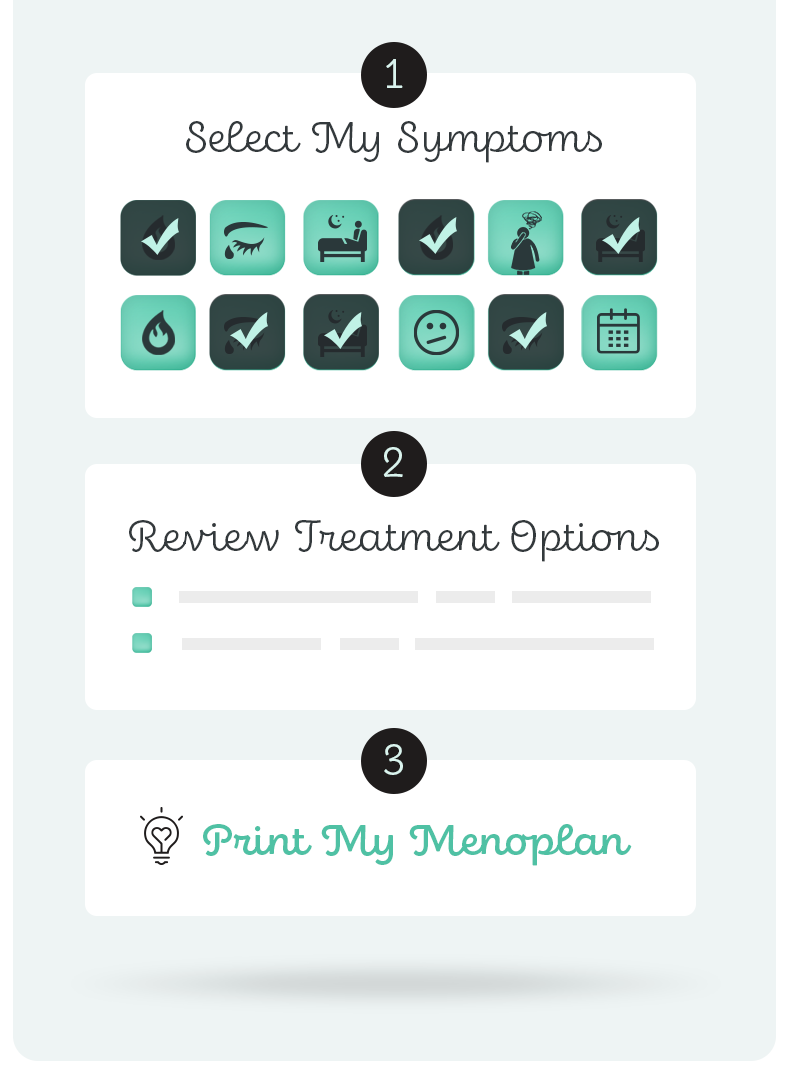About
AN OUNCE OF PREVENTION . . .
Science can tell us a lot about what we can do to stay healthy. Below, we provide links to pages on our website about healthy behaviors that can impact your body in many ways – not just during the menopause transition.
We also recommend some external sites with high quality information. All the sites are either non-profit or government sites that are not influenced by industry. They will not try to sell you anything. (Some may invite you to join their organization.)
HEALTHY EATING
Most of us want to eat healthy. But it can be hard to figure out how when we are bombarded with lots of conflicting info in ads, online, and in social media.
 You can get science-based personalized advice from the free MyPlate app and website. It’s provided by the US Department of Agriculture, and updated when the US Dietary Guidelines are updated. The app can help you set goals and start working on one dietary change at a time. That can help you stick to your goals.
You can get science-based personalized advice from the free MyPlate app and website. It’s provided by the US Department of Agriculture, and updated when the US Dietary Guidelines are updated. The app can help you set goals and start working on one dietary change at a time. That can help you stick to your goals.
Here is the basic idea. “Fruits, vegetables, whole grains, protein foods, and fat-free or low-fat dairy products are healthy choices. Include a variety of protein foods such as seafood, lean meats, poultry, beans, peas, lentils, nuts, seeds, and eggs. Limit foods and beverages higher in added sugars, saturated fat, and sodium.”
Also, be sure to check out our information on weight gain during menopause and weight loss for tips.
EXERCISE
- Check out our treatment page on exercise. The advice there applies to all women.
HEALTHY BRAIN
Scientists recommend a few ways we can keep our brains healthy and decrease the change of developing dementia.
- Be physically active. Get enough exercise.
- Keep your blood pressure under control. If you have high blood pressure, take your meds. Strokes, even mini-strokes, are not good for the brain. Research shows that uncontrolled high blood pressure in middle age may lead to dementia later in life.
- Be cognitively active. Engage socially, practice an art, play strategy games that require you to think, take up a new hobby, keep learning. Check out local museums to see if they have any “Creative Aging” programs. Think of your brain like another muscle – if you don’t use it, it weakens.
Much of the prior research on dementia was with older adults (65+). New studies are looking more closely at what we can do in middle age. Stay tuned! Meanwhile, here’s more details:
GOOD MENTAL HEALTH
Good mental health promotes overall health and well being. The pandemic has taught us we need to pay attention to our social needs. For example, helping others is one way to decrease depression. We particularly like this information about mental health provided by Office of Women’s Health.
WHAT ABOUT ALCOHOL?
The US Dietary Guidelines recommend women have 1 or fewer alcoholic drinks per day. Research shows that drinking less (or not at all) is healthier than drinking more.
What counts as a drink? Each glass or bottle of beer (12 oz), glass of wine (5 oz), or shot of liquor in a mixed drink. So, really, a giant margarita is more than one drink.
- https://www.dietaryguidelines.gov/
- Or, you can see a summary here: https://www.cdc.gov/alcohol/fact-sheets/.
RECOMMENDED VACCINATIONS
Even as an adult there are recommended vaccinations for pneumonia, influenza, shingles, tetanus, flu, and now COVID-19. You can learn which vaccinations are recommended for you at these sites at the Centers for Disease Control and Prevention.
- General information: https://www.cdc.gov/vaccines/adults/index.html and https://www2.cdc.gov/nip/adultimmsched/
- Shingles (Herpes zoster) Shingles is a painful rash that usually develops on one side of the face or body. The risk of shingles increases as we age. The most common complication is long term nerve pain. There is now a vaccine to help prevent you from getting shingles. The vaccine is recommended in adults 50 and older. Learn more at the Centers for Disease Control and Prevention. https://www.cdc.gov/shingles/index.html
HEART HEALTH
Did you know that cardiovascular disease is the number one killer of women? This includes heart disease, strokes, and high blood pressure. And, what’s good for your heart is good for your brain. Exercise, eating healthy food, and not using tobacco are key to good heart health. If you’ve already been diagnosed with heart or circulatory issues, follow your health care provider’s advice and take your meds to keep it from getting worse.
- General Information: https://www.cdc.gov/heartdisease/index.htm
- Prevention: https://www.cdc.gov/heartdisease/prevention.htm
- Know your risk: https://www.cdc.gov/heartdisease/risk_factors.htm
- Heart disease in women: https://www.cdc.gov/heartdisease/women.htm and https://www.cdc.gov/wisewoman/index.htm
BONE HEALTH, OSTEOPOROSIS SCREENING & PREVENTION
It’s important to protect your bones now, so you do not develop osteoporosis. Weight-bearing exercise can help keep bones strong.
The density of our bones can deteriorate over time. The deterioration speeds up for a few years at menopause with the decrease in estrogen, then resumes it’s slower decline.
Osteoporosis is a disease of older women. It increases the risk of fracture of the hip and spine. Fractures of the hip and spine are associated with an increased mortality rate of 10 to 20 percent, most commonly in women over age 80. But you can start protecting your bones now.
Screening for osteoporosis usually doesn’t begin until you are 65 years old, unless you have a history of bone fractures or family history of osteoporosis. See these sites for more information.
BREAST CANCER PREVENTION & SCREENING
In women, breast cancer is the most common cancer and the second most common cause of cancer deaths. The Centers for Disease Control and Prevention provides information about breast cancer risks, prevention, screening, symptoms, and treatment.
- General Information: https://www.cdc.gov/cancer/breast/
- Prevention: https://www.cdc.gov/cancer/breast/basic_info/prevention.htm
- Screening: https://www.cdc.gov/cancer/breast/basic_info/screening.htm
CERVICAL CANCER PREVENTION, SCREENING, & VACCINATION
By the time most women reach menopause they have been screened for cervical cancer for many years. This is the PAP smear you get when you see your OB/GYN or other health care provider. Some women may also have been tested for the HPV (human papilloma virus) that causes cervical cancer. Women 45 and under are eligible for an HPV vaccine. These sites at the Centers for Disease Control and Prevention will help you learn how to lower your risk and provide information about the symptoms, risk factors, screening tests, diagnosis, and treatment for cervical cancer.
- General Information: https://www.cdc.gov/cancer/cervical/
- Prevention: https://www.cdc.gov/cancer/cervical/basic_info/prevention.htm
- Screening: https://www.cdc.gov/cancer/cervical/basic_info/screening.htm
COLON CANCER PREVENTION & SCREENING
Colon cancer is both the third most common cancer and the third leading cause of cancer death in women. The National Cancer Institute provides information about colon cancer risks, prevention, screening, symptoms and treatment.
- General Information: https://www.cancer.gov/types/colorectal
- Prevention: https://www.cancer.gov/types/colorectal/patient/colorectal-prevention-pdq
- Screening: https://www.cancer.gov/types/colorectal/patient/colorectal-screening-pdq
LUNG CANCER PREVENTION & SCREENING
Lung cancer is the leading cause of cancer death in women. Cigarette smoking is the leading risk factor for lung cancer. The Centers for Disease Control and Prevention provides information about lung cancer risks, prevention, screening, symptoms, and treatment. Read more about quitting smoking tobacco in our treatment section.
- General Information: https://www.cdc.gov/cancer/lung/
- Prevention: https://www.cdc.gov/cancer/lung/basic_info/prevention.htm
- Screening: https://www.cdc.gov/cancer/lung/basic_info/screening.htm
ADDITIONAL SOURCES OF INFORMATION ABOUT PERIMENOPAUSE & MENOPAUSE
- North American Menopause Society: https://www.menopause.org
- National Institute on Aging https://www.nia.nih.gov/health/topics/menopause



